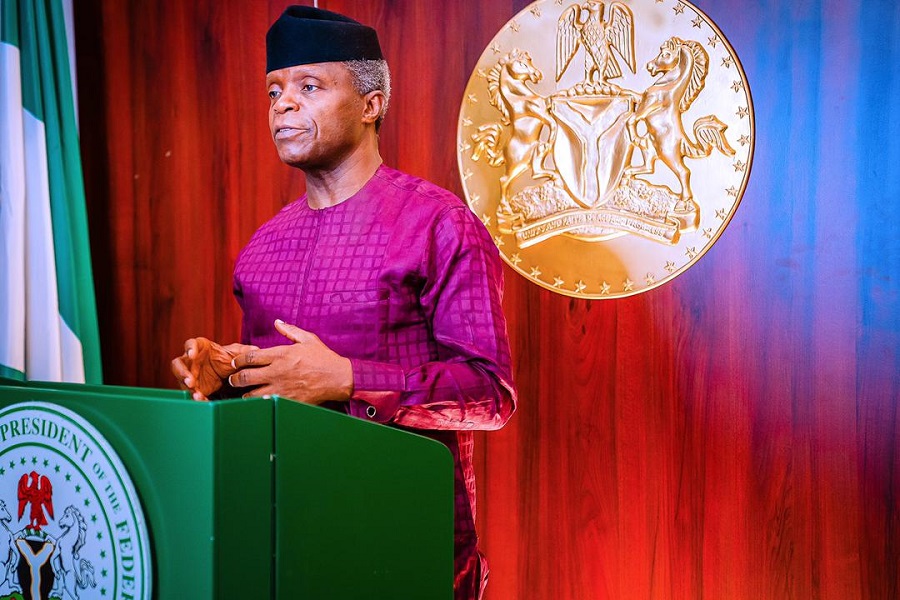Vice President, Professor Yemi Osinbajo has stated that Global Energy Transitions must be inclusive, equitable and just, taking into account the different realities of various economies. He also noted that energy-poor nations including Nigeria emit low quantities of CO2 in comparison to the US and Europe.
The Vice President disclosed this in a statement on Wednesday after his speech at the Columbia Energy Summit, where he discussed Africa’s Perspective on Energy Transition.
READ: Nigeria’s energy future: Why investors should look to hydrogen
What the Vice President said about African Energy transition:
“Global energy transition must be inclusive, equitable, and just, taking into account the different realities of various economies and accommodating various pathways to net-zero emissions by 2050.
“The Paris Agreement highlights the role just energy transition plays in sustainable development, and second, an ongoing ban pushed by wealthy nations and institutions on public investment in fossils including natural gas,” Osinbajo stated.
READ: Vice President Osinbajo reacts to reports of interest in 2023 presidential race
He warned that although the AfDB understands the importance of fossil investments, they are facing pressures to end it. A move, he says does not take into account the “principles enshrined into global treaties around sustainable development and climate action.”
He added that apart from South Africa, 1 billion people in sub-Saharan Africa depend on 81 GW which has contributed less than 1% of cumulative CO2 emissions, as energy-poor countries emit low quantities of CO2 in comparison to the US and Europe.
READ: FG to deliver 1 million vehicle conversion to autogas by end of 2021
“What is often not sufficiently considered in the transition to net zero-emission is the critical role energy plays in catalyzing the economic development of poorer countries from its use in industrialization and manufacturing to basic things such as cooking,” he said.
On Energy Investments in Nigeria
The Vice President opined that there is a mismatch in energy investments globally, stating that high-income countries who hold 15% of the world’s population receive 40% of global energy investment, while other countries, home to 40% of the world’s population receive just 15% of said investment.
“It is important that we are not left behind. LPG-based policies and programmes guarantee clean cooking solutions by 2030, however, an investment of $4.4 billion is needed annually till 2030,” he said.
READ: FG says vehicle owners to pay N250,000 to convert from petrol to autogas
He stated that for Nigeria “to reach net-zero emissions by 2050, we must first end energy poverty by 2030.”
He revealed that Nigeria has developed its Solar Naija Programme under the Economic Sustainability Plan, which aims to connect 25 million people to power by 2023, adding that the power of off-grid renewables can be used to close the energy gap in Nigeria and Africa.
What you should know
In April, Nigeria flagged off a N140 billion Renewable Energy scheme which will be provided in concessionary financing from the Central Bank of Nigeria and the commercial banks for off-grid developers to roll out mini-grids and solar home systems to provide electricity to locations across the country.
